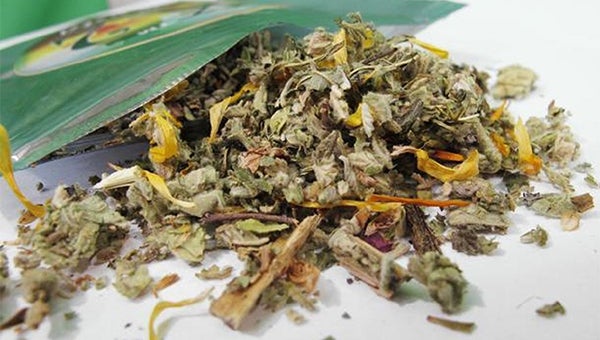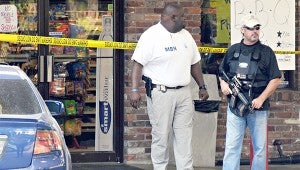Forum to shine light on spice drug trend
Published 6:36 am Sunday, July 12, 2015

Since April, more than 1,200 emergency room and doctor’s office visits across the state have been related to spice, according to data from the Mississippi Department of Health. That’s the most in the nation by a margin of almost 3 to 1.
Mississippi leads the nation in overdoses of the synthetic drug commonly referred to as spice, and while medical visits related to its consumption here haven’t reached the epidemic proportions, community leaders are making an effort to extinguish the problem before it takes hold.
Since April, more than 1,200 emergency room and doctor’s office visits across the state have been related to spice, according to data from the Mississippi Department of Health. That’s the most in the nation by a margin of almost 3 to 1.
The Department of Health will hold a forum on spice at 5 p.m. Monday, July 20 at the Warren County-Vicksburg Public Library in an attempt to better educate the public on the dangers of this drug trend.
“Spice has become a supplement for marijuana,” said Peter Anderson, a substance abuse counselor at Warren-Yazoo Mental Health. “If we can bring more awareness to Vicksburg and Warren County, that would help tremendously.”
‘A hodgepodge of dangerous chemicals’
The drug resembles shredded herbs and is sprayed with chemicals that were designed to mimic the effect of marijuana, though law enforcement, health experts and users agree that its effects are much different than pot.
“It is a hodgepodge of dangerous chemicals that in many cases causes violent outbursts and life threatening health issues with those that use it,” Warren County Sheriff Martin Pace said.
Spice became illegal in Mississippi in 2010 after then-Gov. Haley Barbour signed a bill into law immediately banning its use and sale. Possession of less than 30 grams of spice is a misdemeanor punishable by up to 90 days in jail. Possession of more than 30 grams is a felony and punishment depends on the amount seized. Before Barbour’s order it was widely available in smoke shops and gas stations.

DRUG SEIZURE: Mississippi Bureau of Narcotics Agents Norman Harris, left, and Capt. Jimmy Nichols stand outside the Pecan Ridge Shell at 20 Freetown Road in 2011 after a drug bust yielded hundreds of packages of the illegal drug called spice.
In August 2011, Warren County deputies and Mississippi Bureau of Narcotics agents seized seven pounds of spice from a convenience store at Culkin and Freetown roads.
Since then, spice arrests have tapered off in both the city and county, law enforcement officials said.
“As the laws have changed making it more easy to arrest and prosecute for a variety of chemicals commonly known as spice, we’ve seen the open air markets such as convenience stores decline dramatically after a series of arrests and prosecution,” Pace said. “Through clandestine sources it is still available on the street, no different than any other illegal drugs that find their way into local communities.”
But the drug is still prevalent. A few weeks ago, Vicksburg Police Lt. Troy Kimble stopped a man believed to be driving under the influence of spice. The air conditioner in the vehicle was at full blast, but the man was sweating as if he had just finished running a marathon.
“What I’ve seen is that they’re almost hallucinating in a way. They’re very, very nervous and irrational,” Kimble said. “They’re sweating profusely. Their temperature seems to be high, and their eyes seem to be enlarged.”
‘Panic attack mode’
A Vicksburg man who says he used and sold spice regularly between 2010 and 2012 said he began smoking the herbs mixed with chemicals because it, unlike marijuana, would not show up on a drug test. The man spoke on condition of anonymity for fear of losing his job if he was associated with the drug.
He said it caused him to have several panic attacks and at least one seizure, though he never sought medical treatment.
“There were a few times I would hit it once or twice and go into panic attack mode,” the man said.
He has no memories of the majority of times he used the drug.
Though the product came in the same package bearing the same logo each time he bought it, the strength varied wildly, he said. Spice is not regulated by any agency and is typically labeled as potpourri or incense that is not for human consumption.
“It looked the same so how do you tell which is which? The more chemicals they have made illegal, the stronger they have gotten,” he said.
Some users experience hyperactivity and can become violent. Many experience the sensation of being on fire and consequently strip off their clothing.
“If we get a call that someone is aggressive and taking off their clothes, we usually know they are on spice,” Pace said.
The chemicals in spice bond to the same areas of the brain as the psychoactive chemicals in marijuana but because of it’s potency it poses a much more lethal danger than pot, said Anderson, the substance abuse counselor.
“The negative experiences of spice include a psychotic state of mind, extreme anxiety, paranoia and hallucinations,” Anderson said. “It has a negative impact on the chemistry of the brain, which has long-term effects on the decision making process and the pleasure senses of the brain.”
Though chemicals in spice are illegal in Mississippi and under federal guidelines, new chemicals continue to pop up to skirt legislation. Such moves are nothing new.
“In the early days when we first began seeing it, like many drug enforcement issues, the problem was ahead of the legislation needed to fight its distribution,” Pace said.
An online search shows that varieties of spice and the chemicals used to make it are readily available.
The ability to make the drug at home appeals to younger people, Anderson said.
“The unawareness of the effects it can have on the adolescence makes it appealing to the younger crowd,” Anderson said.





